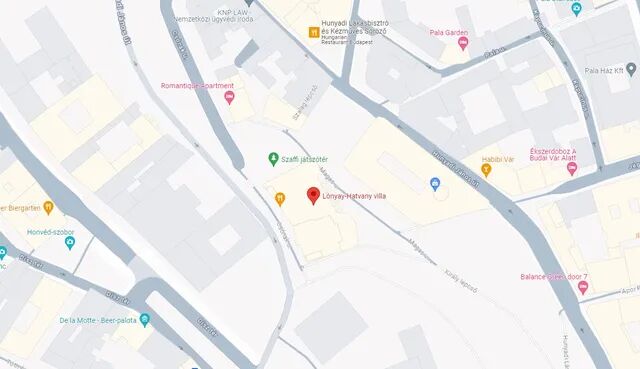English
After Ukraine: Will The Anglosphere & Europe Stay Together? - A Danube Institute Forum
This year marks the twentieth anniversary of the publication of "The Anglosphere Challenge: Why the English-Speaking Nations Will Lead the Way in the 21st Century”, written by James C. Bennett, which launched the Anglosphere as a significant explanatory concept in debates on politics and international relations.
From Amazon’s description:
“Bennett believes that traits common to these countries ― a particularly strong and independent civil society; openness and receptivity to the world, its people and ideas; and a dynamic economy ― have uniquely positioned them to prosper in a time of dramatic technological and scientific change.”
Twenty years later, Mr. Bennett will join a stellar group to discuss the premise of the book, whether his original predictions still stand, and if the Anglosphere is likely to be a significant player in the emerging world of shifting alliances that the Russo-Ukraine war is midwifing.
For, however the war ends, it is likely to produce its own realignment of nations, alliances, and institutions at both a European and a global level. Such a realignment would start slowly and reflect not only the war’s result, its geographical cease-fire line, and the provisions of any peace treaty but also how unexpected clashes within NATO, the European Union, and other Atlantic forums revealed different and competing national and regional interests that were kept in check while the war continued. All major wars have such long run consequences.
No potential divergence between allies and partners is greater and more serious than the growing gap between the European and Anglosphere nations of Western civilization. In the decade before the Russian invasion, the first signs of such a possible divorce could be seen in Brexit, the strong reactions to Brexit at home and abroad, the AUKUS alliance joining the United States, Australia, and Britain — but not Europe’s second nuclear power, France — in a U.S.-led military alliance designed to help contain the growing power of China. And the debate within the United States on a shift of military, diplomatic, and economic resources from Europe to Asia which, if pursued thoroughly, would conflict with Franco-German interests in restoring closer economic relations with both China and Russia.
If such a realignment were to develop, could it end up as the most significant division of Western civilization since the Reformation? Which countries would end up politically on which side of the divided civilization? Would Poland, Scandinavia, the Baltic states, Denmark, Italy and Portugal defect from continental Europe for the “Open Seas.” Would Germany, Italy, and Spain seek to a neutral position halfway between China and the “Les Anglo-Saxons?” And would the Kremlin, which has long sought to divide the Anglosphere from the European Union to promote “Our Common European Home” find that realignment quite as comfortable as it hoped?
We have recruited a distinguished symposium of statesmen, writers, analysts, economists, academics, and historians to discuss the opportunities and threats that might emerge from this realignment.
9.00-9.30 AM: Registration
9.30-9.40 AM: Welcome and Introduction by John O’Sullivan, President of the Danube Institute
9.40 - 10.45 AM Keynote Speech: Twenty Years on: The Anglosphere Challenged.
- Speaker: James C. Bennett, Writer, speaker, and consultant in public policy issues specializing in technology and society
- Commentator: Marek Matraszek, Chairman of CEC Group, Poland
10.45 AM - 12.30 PM Session I.: Roads to Serfdom, Roads to Liberty
- Speaker: President Václav Klaus, Economist and Former President of the Czech Republic
- Commentator: Tamas Orbán, Brussels-based political journalist for The European Conservative
Q & A
12:30-1:30 PM Lunch Break
1.30 - 3.15 PM Debate: Victorian Values, Asian Values, Woke Values: Whose Will Win the Future?
- Professor Frank Füredi, Executive Director of MCC Brussels, author and social commentator, emeritus professor of sociology at the University of Kent, U.K.
- Nathan Levine, U. S. analyst and consultant on politics and international affairs, Danube Institute Visiting Fellow
3.15 - 4 PM Round Table Discussion:
- James Bennett, Writer, speaker, and consultant in public policy issues specializing in technology and society
- Václav Klaus, Economist and Former President of the Czech Republic
- Professor Frank Füredi, Executive Director of MCC Brussels, author and social commentator, emeritus professor of sociology at the University of Kent, U.K.
- Nathan Levine, S. analyst and consultant on politics and international affairs, Danube Institute Visiting Fellow
- Marek Matraszek, Chairman of CEC Group, Poland
- Tamás Orbán, Brussels-based political journalist for The European Conservative
Moderated by John O’Sullivan, CBE, Danube Institute founder & President, journalist and author.
Language: English
Date: Friday, April 05, 2024, 9 AM - 4 PM
Venue: Lónyay-Hatvany Villa - 1. Csónak str., 1015 Budapest
(Entrance: Aranybástya Restaurant)
We reserve the right to make any changes related to event organization. Participation in the event is free, but registration is required, which can be done by email at events@danubeinstitute.hu or by clicking on the R.S.V.P. button:
